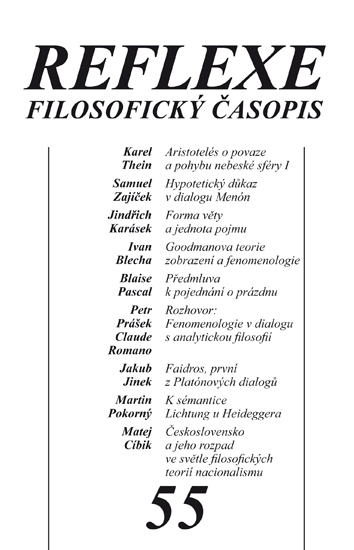Aristotelés o povaze a pohybu nebeské sféry I. Nebe jako tělesná podstata
Aristotle on the Nature and Motion of the Celestial Sphere: I. The Heavens as Corporeal Substance
Author(s): Karel TheinSubject(s): Philosophy, Ancient Philosphy
Published by: Univerzita Karlova v Praze, Nakladatelství Karolinum
Keywords: Aristotle;greek philosophy;Platonic world;
Summary/Abstract: In De caelo I–II, Aristotle replaces the Platonic world soul with a self-moving, internally animate “first body”. The article reconstructs Aristotle’s progressive introduction of this not only geometrically, but also physically perfect body, with a special focus on its internal anima-tion.The latter follows from the same principles of animate motion that we encounter in the biological treatises, yet Aristotle denies that the first body or simply the celestial sphere has a soul of the kind that he intro¬duces in De anima.The article takes a closer look at various conceptual implications of this denial, including the need to reconcile the insistence on the corporeal nature of the heavens with the premise of its self-sus¬taining perfection.It is to this end, the article concludes after a detailed examination of several passages including De caelo, II,3,286a8–12, that Aristotle recurs to his general notion of god as eternal, changeless and animate actuality: clearly, nothing prevents Aristotle for applying this notion of god to a geometrically and physically perfect substance, al¬though this move raises the question (developed in this article’s forth¬coming second part) of how to reconcile this fully natural perfection with the notion of the incorporeal prime mover, a notion apparently sidelined in De caelo itself.
Journal: Reflexe
- Issue Year: 2018
- Issue No: 55
- Page Range: 5-22
- Page Count: 18
- Language: Czech

